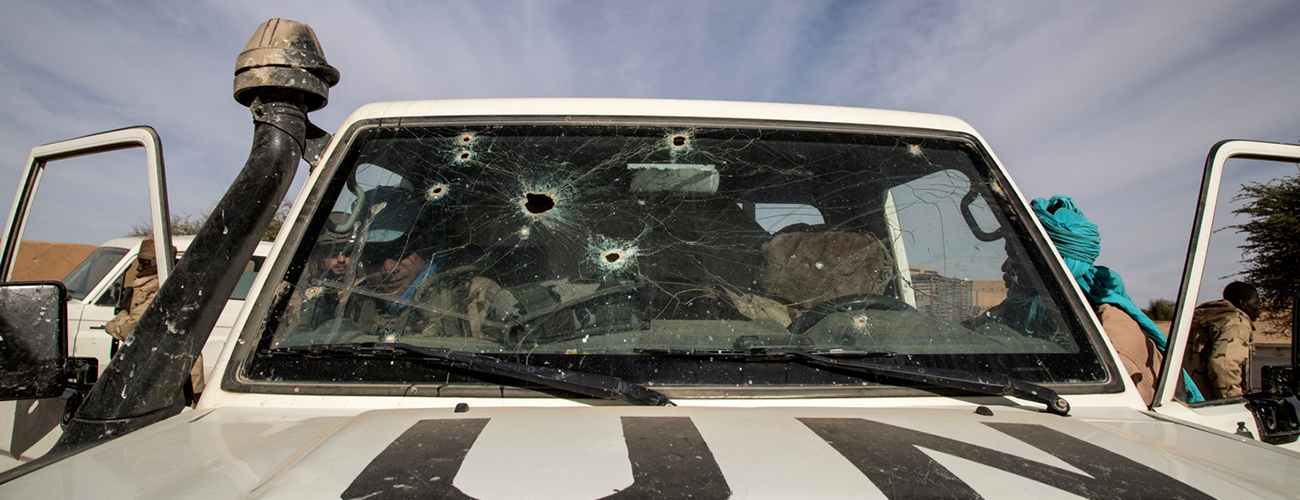UN vehicle damaged by an attack in Aguelhok, Mali, that claimed the lives of ten Chadian peacekeepers and injured at least twenty-six, January 22, 2019. (UN Photo/Marco Dormino)
Since 1948, more than 1,000 UN personnel have been killed in malicious acts while serving in UN peacekeeping operations. Since 2013, the vast majority of fatalities have taken place in the Central African Republic (CAR), Mali, and the Democratic Republic of the Congo (DRC). To address this trend, the UN Secretariat and member states have increasingly focused on strengthening the policy framework on accountability to peacekeepers. They have also increasingly focused specifically on how to pursue justice for peacekeepers who have been victims of attacks.
This paper focuses on advancing justice for crimes against peacekeepers as one aspect of the overall effort to enhance accountability to peacekeepers. It provides an overview of the role of UN peacekeeping operations in investigating and prosecuting crimes against peacekeepers and the UN’s growing focus on advancing and prioritizing accountability for these crimes. It then examines case studies of criminal cases supported by the UN missions in CAR (MINUSCA), Mali (MINUSMA), and the DRC (MONUSCO) in their respective host states and provides an overview of cross-cutting challenges they have faced.
The paper concludes with recommendations to help the UN Secretariat, peacekeeping operations, the Security Council, and other member states accelerate the investigation and prosecution of crimes against peacekeepers in a consistent and balanced manner:
- The UN Secretariat should maintain a comprehensive approach to accountability, develop a common definition of crimes against peacekeepers, ensure that host states adhere to human rights standards when engaging with those accused of crimes against peacekeepers, and improve internal and external coordination in this area.
- UN missions should pursue a comprehensive approach to accountability, continue to support host-state investigations and prosecutions of those accused of crimes against peacekeepers, advocate for host-state authorities to pursue accountability, and ensure sustained documentation of and follow-up on cases.
- The Security Council should reinforce peacekeeping mandates to build the host state’s capacity to pursue accountability and encourage legal clarity on the nature of crimes against peacekeepers.
- UN member states should use the group of friends to offer new ideas on ways to promote accountability and use the Special Committee on Peacekeeping Operations to discuss ways to improve coordination in this area.








